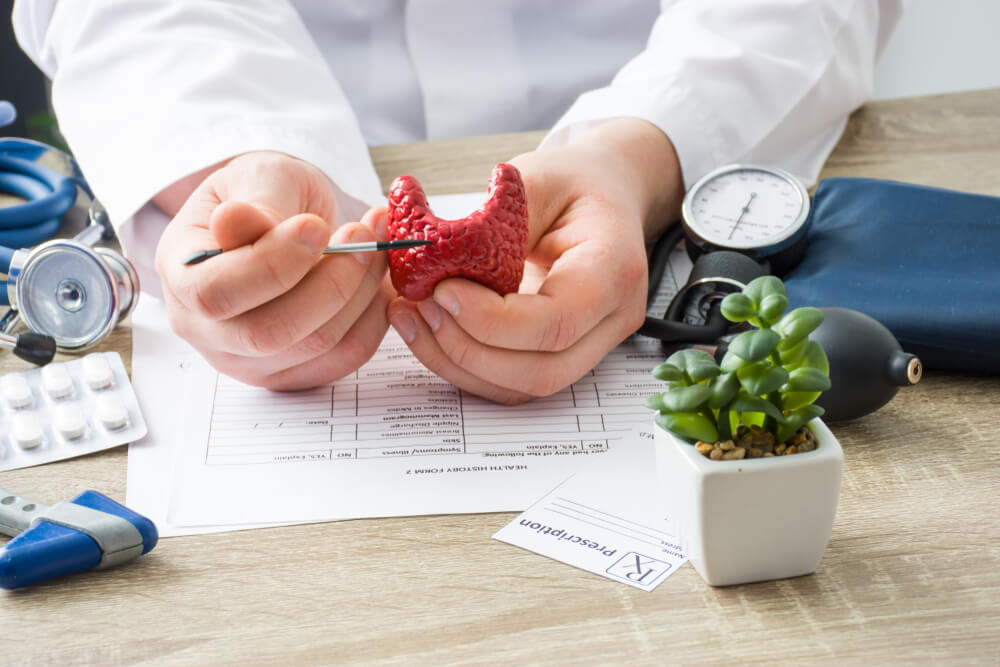The thyroid is a gland in the front area of the neck. Its primary role is to produce hormones that help regulate different body functions in the body. Thyroid disease occurs when the gland produces either too little or too many hormones.
The medical community categorizes several thyroid disease types, like hypothyroidism, hyperthyroidism, Hashimoto’s thyroid, and thyroiditis.
In this article, the excerpts from the Pediatric Endocrine and Metabolic Center of Florida will explore the signs of thyroid problems and causes and will also talk about good thyroid problem treatment options.
About Thyroid Problems
The thyroid gland is essential to the human body as it plays a crucial role in growth, body development, and metabolism. By releasing a seedy amount of hormonal compounds into the bloodstream, it aids in regulating several functions of the body.
When your thyroid fails to produce the right amount of hormones, the consequences can significantly impact the body. When these hormones are too high, we’re talking about hyperthyroidism. When the thyroid production is too low, it can lead to a condition called hypothyroidism.
When there’s too much thyroid hormone in the bloodstream, the body will use the available energy too quickly, which will lead to feeling constantly tired, induce weight loss, and can make patients nervous all the time.
On the other hand, when the hormone production is too low, patients may gain weight, feel sluggish, and be unable to tolerate cooler weather or cold in general.
Both of these diseases can be caused either by genetic problems or a variety of other conditions.
Thyroid diseases are prevalent and may affect women, men, the elderly, teenagers, and even infants, with some cases being present right from birth. In contrast, others can occur as the patient ages.
Causes and Signs of Thyroid Problems

Both thyroid conditions can develop due to other diseases that can impact the thyroid gland’s work.
These conditions are the following:
- Hashimoto’s thyroiditis: This is an autoimmune, genetic medical issue in which the body’s cells attack the thyroid.
- Thyroiditis: The thyroid gland becomes inflamed, affecting hormone production.
- Postpartum thyroiditis: Occurs in women following childbirth and is usually only temporary.
- Non-functioning gland: In some cases, the thyroid gland simply doesn’t work as it should from birth. It’s rare, affecting only one in about 4,000 newborn children. Still, it can lead to mental and physical consequences when left untreated.
- Graves’ disease: The thyroid gland becomes overactive producing too much hormone.
- Excessive iodine: When there’s simply too much of this mineral responsible for thyroid hormone production, the gland will simply produce too much hormone,
- Nodules: Some nodules can be overactive in the gland as well, leading to hyperthyroidism.
When discussing thyroid symptoms, medical experts usually state that the signs that point to these problems are similar to other medical conditions, often making a proper diagnosis difficult.
Still, the signs of thyroid problems are usually divided into two groups: overproduction or underproduction of thyroid hormones.
Symptoms of hypothyroidism are usually the following:
- Anxiety
- Weight loss
- Sleep problems
- Enlarged thyroid
- Muscles tremors and weakness
- Sensitivity to heat
- Vision problems
Signs of thyroid problems related to an underactive thyroid:
- Fatigue
- Weight gain
- Being forgetful
- Coarse and dry hair
- Hoarse voice
- Problems with tolerating cold
Thyroid Disease Risks
Some people may be at a higher risk of developing these problems if they:
- Have had problems with thyroid disease in the family
- Have medical conditions like lupus, Turner syndrome, rheumatoid arthritis, primary adrenal insufficiency, anemia, type 1 diabetes, Sjögren’s syndrome
- Take meds with high an iodine concentration like amiodarone.
Thyroid Disease and Diabetes
Diabetes is a known risk factor for thyroid problems. Namely, those patients who already have type one diabetes are at a higher risk of developing thyroid disease since both these conditions are autoimmune issues.
For those with type two diabetes, the risks associated with thyroid problems are lower but still present.
Because of this, regular testing is recommended to document any changes as early as possible.
Diagnosis and Thyroid Problem Treatment
As mentioned above, thyroid disorder symptoms are often similar to other conditions making establishing a proper diagnosis a bit more complicated. However, specific tests can still help medical experts discover any abnormalities in thyroid gland functions.
Usually, the following tests are used:
- Blood tests: Look at TSH, T4, FT4, T3, and FT3 levels, thyroid antibodies, calcitonin, and thyroglobulin.
- Imaging tests: A thyroid scan or an ultrasound can help diagnose any shape or size changes and can help discover growths (nodes) as well.
- Physical exam: The medical expert simply feels your neck for any enlargement or other telltale signs of thyroid problems.
Thyroid Disease Treatment

The main goal of the treatment is to return the hormone levels to normal, and experts may achieve this in several ways, depending on the patient’s condition.
In the case of hyperthyroidism, treatment methods may include the following:
- Anti-thyroid drugs: compounds that stop the overproduction of thyroid hormones.
- Beta-blockers: These compounds help control your symptoms while not inhibiting hormone production.
- Radioactive iodine: Damages thyroid cells impairing the high-level production of hormones.
- Thyroidectomy or thyroid surgery: Doctors may sometimes recommend removing the thyroid gland altogether. This will seize hormone production, but patients will need to take replacement hormones after that. The surgery may be performed with an incision at the neck’s front area or in the armpit. The first one is the more traditional way, while the second uses an elevated retractor and a robotic arm to make the surgery possible. In the latter case, less visible scarring will remain, but it’s more invasive for the patient and generally more complicated.
In the case of hypothyroidism, the main course of action usually is:
- Taking thyroid replacement meds: These are synthetic thyroid hormones, enabling patients to live everyday life as they will get controlled doses of the hormone.
Living With Thyroid Problems
Thyroid problems will often mean that patients will have to deal with a medical condition requiring life-long attention and ongoing management, usually involving taking medication daily.
Because of this, performing thyroid self-checks can prove to be essential. As hormonal fluctuations may cause severe problems in adults and children alike, regularly monitoring your thyroid for lumps and bumps can go a long way in finding proper treatment faster and getting relief from the bothering symptoms.
Once the diagnosis has been established and the proper course of action has been determined, there may be additional steps patients will need to take to keep their health in check. For instance, the treatments (medication dosages) might need to adjust over time.
Apart from that, people with thyroid problems will still be able to live an entirely normal life. It’s all about finding the correct treatment method for every particular case.
On that note, if you have any concerns and questions regarding this topic, feel free to reach out to us or schedule an appointment with our experts.


